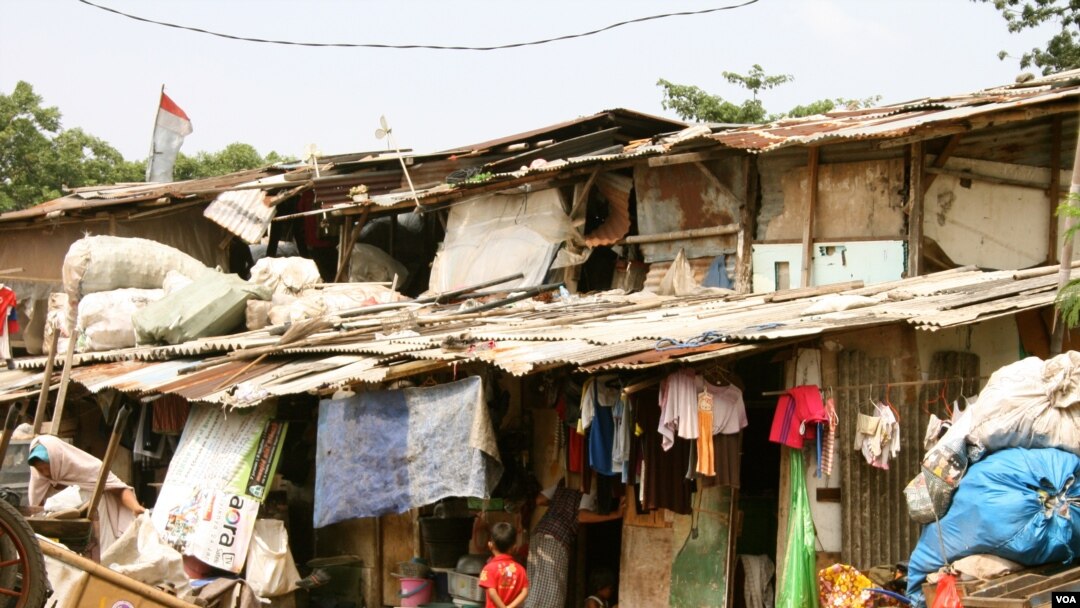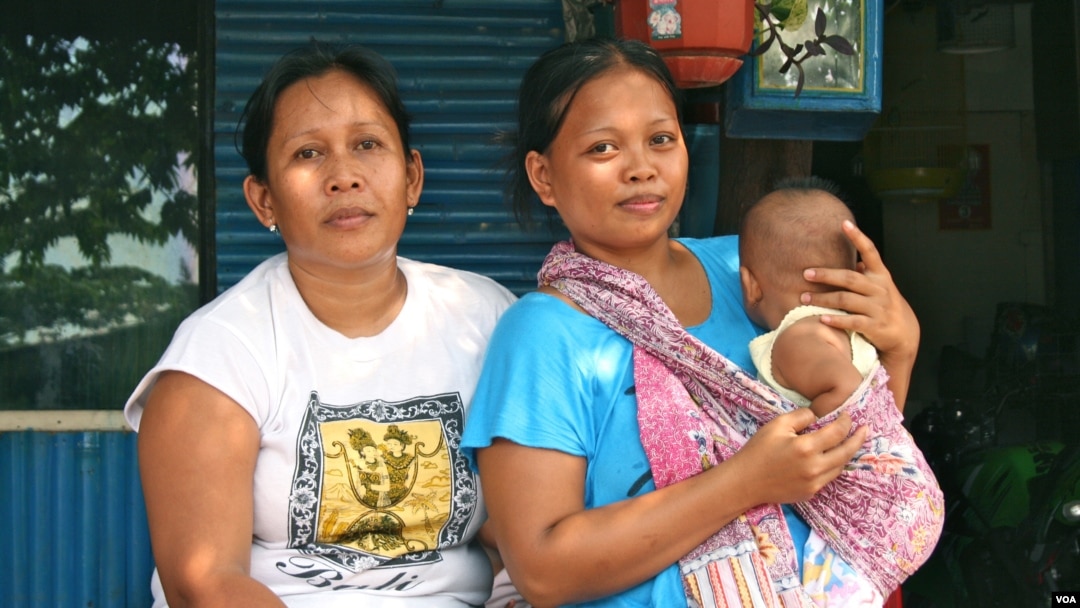JAKARTA —
With high costs and excessive red tape, obtaining a birth certificate in Indonesia is usually a bureaucratic nightmare. For millions in the country’s poor and marginalized communities, lack of the document means no access to education and basic healthcare.
After collecting plastic bottles and sorting through trash, 26-year-old Santi returns home to her small wooden shack.
Her son plays banjo on local buses for spare change, and together they make just enough to get by.

That’s especially true for the children, many of whom officially do not exist.
Santi says she cannot afford to pay for birth certificates for her three children.
But without a certificate they cannot go to school, severely limiting their future employment options. Of course she is worried, she says, but money is so tight she is just grateful there is enough food to eat.
Santi’s children are among as many as 35 million whom activists estimate are unregistered - most from poor and marginalized communities.
Amrullah Sofyan, a project manager at Plan Indonesia, says birth registration is absolutely critical.
"Birth registration is part of the first identity for the children to become citizens because it is linked with other rights. Identity, nationality, right to education, and right to health," he said.
Without a legal identity, access to education and basic healthcare is denied. Marriage registration, a passport and the right to vote are also out of reach.
Plan, an organization that focuses on child rights, has initiated global programs to facilitate universal birth registration.
Last year, the group surveyed five slums in Jakarta and found that more than 60 percent of parents had never tried to register their children.
But that was just a small study. Across Indonesia, the figures are staggering - and getting worse. Plan estimates that as many as three million additional children each year join the 30 to 35 million who are unregistered.
Those numbers mean Indonesia has one of the lowest rates of birth registration among countries in the Association of Southeast Asian Nations (ASEAN). In Cambodia, Thailand and Singapore and Vietnam, more than 90 percent of the population is registered.
Sofyan says the government does not take low registrations seriously enough, by treating the problem more as a bureaucratic issue of population administration.
"It is a matter of citizenship," he said. "They are citizens of this country. If we are only concerned with population administration, we will only reject and send them back to their village… We ask the government when they make a policy not to be blind to the people because it is a reality. Street children and marginalized children [are] a reality. The policy should be open."
These are the sounds of lunchtime at an informal school for street children.
It’s run by a local resident, who lives close by to Santi’s slum.
Each day up to 30 children attend the basic lessons. In the afternoon they help their parents sort plastic, and busk or beg for change.
Ferdy, an official from the Social Affairs Ministry, has been observing the conditions of the school and is collecting data in the area. He says the government has launched a national child welfare program.
The goal of the program, he says, is give every child a savings account with a one-off deposit of around 150 dollars to cover basic education and health costs.
But without a birth certificate, these children - and at least 30 million others - are unlikely to qualify.
Pipit, 56, who founded the school three years ago, says the children are smart, have potential and deserve a chance.
The students even wrote a song about it. The chorus talks about their dreams to go to real school.
But for now, it’s street school or nothing.
After collecting plastic bottles and sorting through trash, 26-year-old Santi returns home to her small wooden shack.
Her son plays banjo on local buses for spare change, and together they make just enough to get by.

The makeshift wood and corrugated iron shacks where Jakarta mother Santi lives with her three children, Jakarta, Indonesia, March 2, 2013. (K. Lamb/VOA)
Opportunities are few for people who live in this Jakarta slum.That’s especially true for the children, many of whom officially do not exist.
Santi says she cannot afford to pay for birth certificates for her three children.
But without a certificate they cannot go to school, severely limiting their future employment options. Of course she is worried, she says, but money is so tight she is just grateful there is enough food to eat.
Santi’s children are among as many as 35 million whom activists estimate are unregistered - most from poor and marginalized communities.
Amrullah Sofyan, a project manager at Plan Indonesia, says birth registration is absolutely critical.
"Birth registration is part of the first identity for the children to become citizens because it is linked with other rights. Identity, nationality, right to education, and right to health," he said.
Without a legal identity, access to education and basic healthcare is denied. Marriage registration, a passport and the right to vote are also out of reach.
Plan, an organization that focuses on child rights, has initiated global programs to facilitate universal birth registration.
Last year, the group surveyed five slums in Jakarta and found that more than 60 percent of parents had never tried to register their children.
But that was just a small study. Across Indonesia, the figures are staggering - and getting worse. Plan estimates that as many as three million additional children each year join the 30 to 35 million who are unregistered.
Those numbers mean Indonesia has one of the lowest rates of birth registration among countries in the Association of Southeast Asian Nations (ASEAN). In Cambodia, Thailand and Singapore and Vietnam, more than 90 percent of the population is registered.
Sofyan says the government does not take low registrations seriously enough, by treating the problem more as a bureaucratic issue of population administration.
"It is a matter of citizenship," he said. "They are citizens of this country. If we are only concerned with population administration, we will only reject and send them back to their village… We ask the government when they make a policy not to be blind to the people because it is a reality. Street children and marginalized children [are] a reality. The policy should be open."
These are the sounds of lunchtime at an informal school for street children.
It’s run by a local resident, who lives close by to Santi’s slum.
Each day up to 30 children attend the basic lessons. In the afternoon they help their parents sort plastic, and busk or beg for change.
Ferdy, an official from the Social Affairs Ministry, has been observing the conditions of the school and is collecting data in the area. He says the government has launched a national child welfare program.
The goal of the program, he says, is give every child a savings account with a one-off deposit of around 150 dollars to cover basic education and health costs.
But without a birth certificate, these children - and at least 30 million others - are unlikely to qualify.
Pipit, 56, who founded the school three years ago, says the children are smart, have potential and deserve a chance.
The students even wrote a song about it. The chorus talks about their dreams to go to real school.
But for now, it’s street school or nothing.


